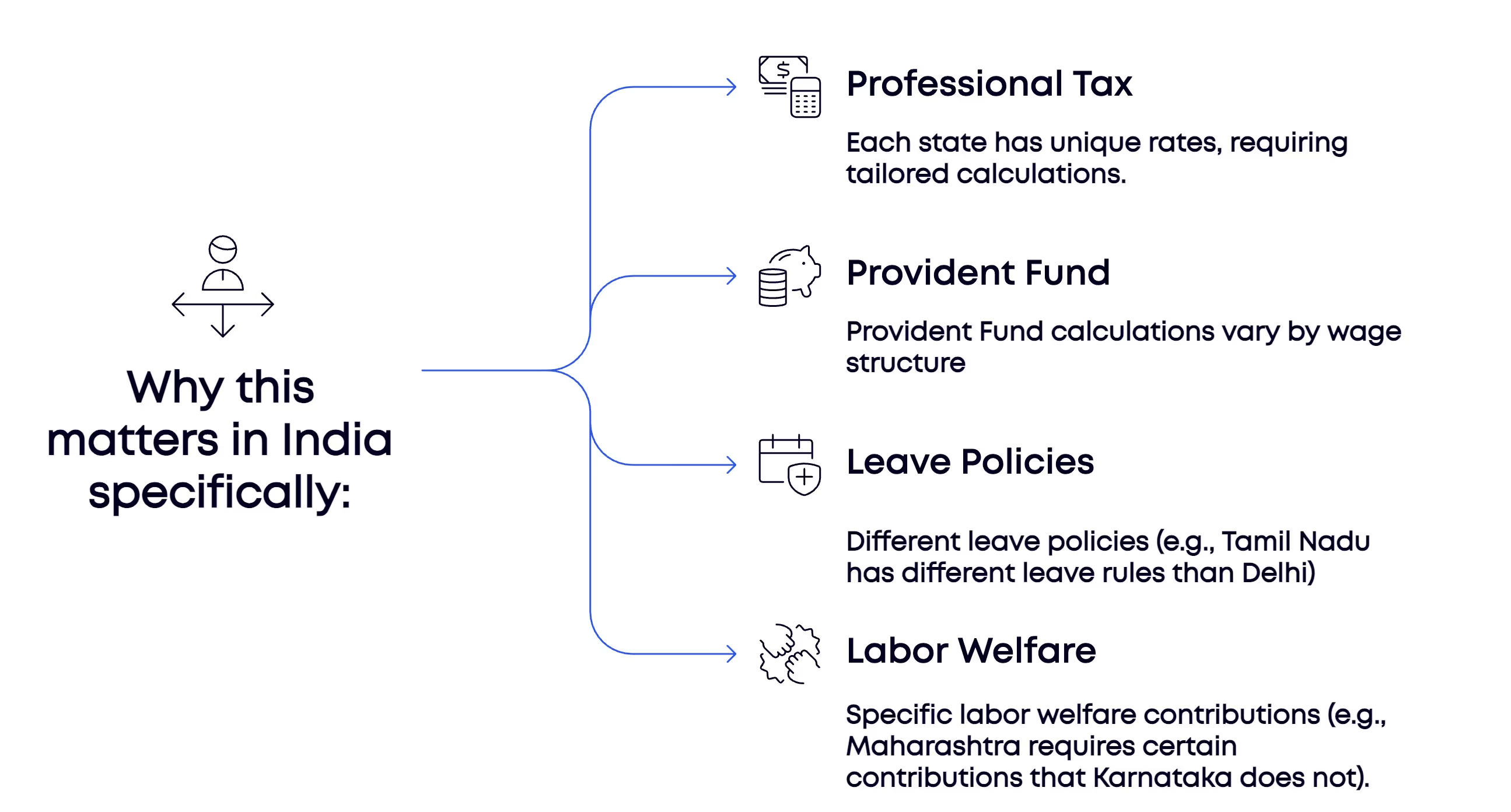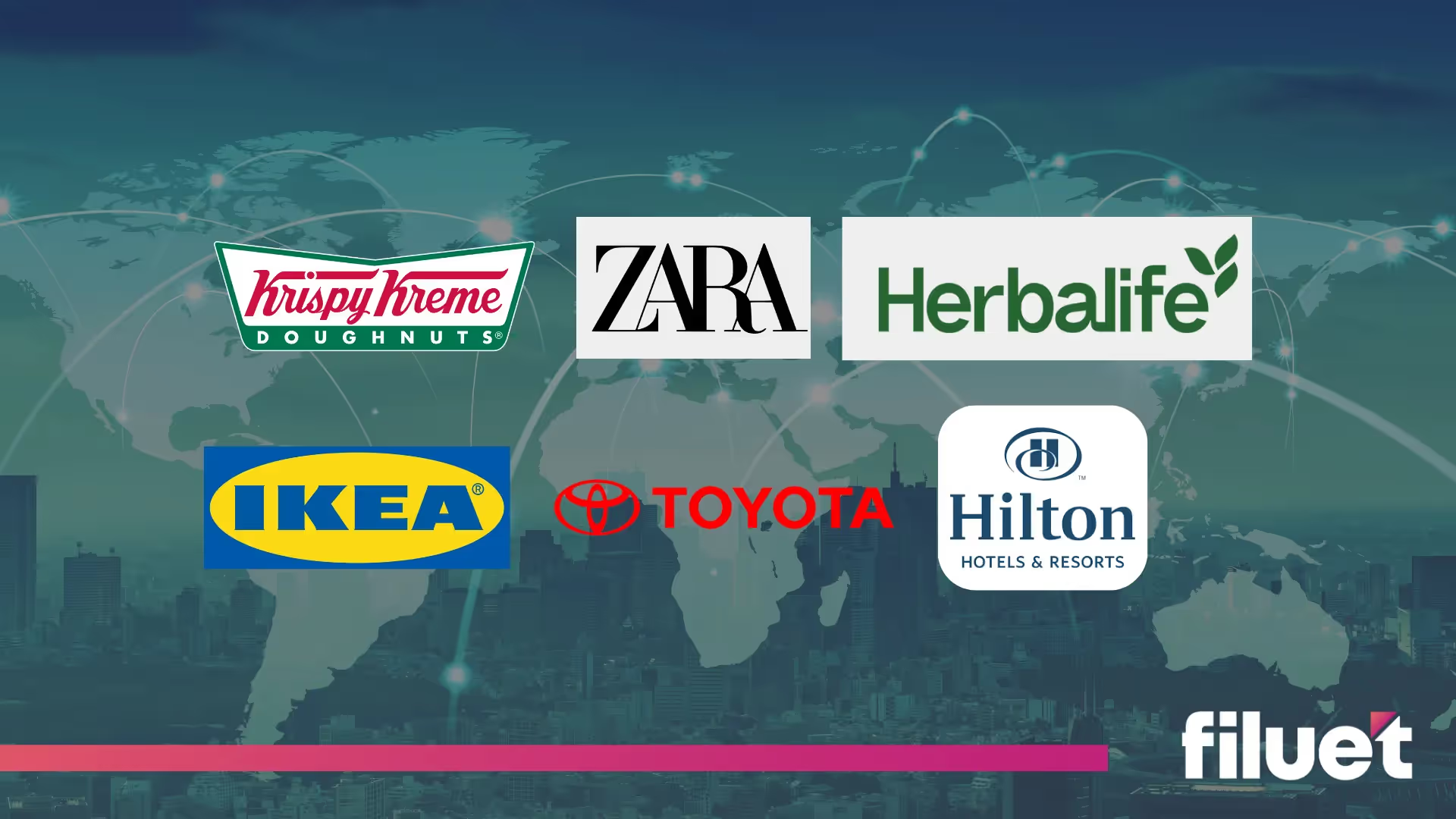Here's what procurement teams don't tell you: while global trading giants step up their India presence amid 8.2% GDP growth, most companies still get their hiring strategy spectacularly wrong.
One misguided decision between EOR vs staffing agencies in India can cost you months of delays, thousands in penalties, or worse - your best candidates walking away.
We've watched brilliant expansion strategies crumble because someone picked convenience over compliance - or worse, compliance over speed.
After guiding companies through hiring decisions across 11+ markets, we've seen ten-person teams save $80,000 in year-one costs by choosing correctly, and others lose talent because they didn't.
The difference between companies that nail their India entry and those that don't often comes down to this single choice. So, make sure you get it right the first time.
Employer of Record vs Staffing Agency in India Explained
Most companies think these are interchangeable solutions. They're not, and mixing them up costs serious money.
The fundamental difference comes down to legal responsibility.
An EOR becomes your legal employer, handling everything from payroll to compliance. A staffing agency finds talent but typically walks away once the placement is made.
What is an Employer of Record (EOR) in India?
An Employer of Record serves as your legal employer, taking full responsibility for employment contracts, payroll, and compliance with India's complex labor framework.
Unlike recruiters who find people, EORs become the official employer while you direct the day-to-day work. This means they handle employment contracts, income tax withholding, social contributions, and deal with India's 28 state-specific regulations.

What is a staffing agency in India?
Staffing agencies are talent acquisition specialists - they find people, you employ them.
They maintain databases of candidates and use networks to source, screen, and present qualified professionals.
The key distinction: Most staffing agencies step back once placement is complete. For permanent hires, you become the direct employer, handling all compliance. For temporary placements, the agency remains the employer but only for those specific workers.
What staffing agencies excel at:
- Understanding 60-90 day notice periods (standard for professionals)
- Cultural fit assessment across diverse regions
- Managing counter-offer negotiations (extremely common in India's competitive market)
- Volume hiring for specific projects or seasonal needs
Hiring in India with EOR vs Staffing Agency
EOR hiring process in India
The EOR hiring process streamlines everything after candidate selection. You identify who to hire, then the EOR handles the administrative heavy lifting.
Once you've selected your candidate, the EOR extends a locally compliant offer letter covering salary structures, probation periods, leave policies, and termination clauses per Indian labor laws. The candidate signs with the EOR as their legal employer.
Next comes rapid onboarding:
- EOR collects personal documents (PAN, Aadhaar, education certificates)
- Registers employee for Provident Fund and ESI (if applicable)
- Sets up payroll with proper tax calculations
- Provides HR policy overview and platform access
The Speed advantage: Companies can go from candidate selection to fully employed team member in days.
We've seen our EOR specialists onboard engineering teams within 72 hours of decision-making. The EOR remains an ongoing partner throughout employment - handling monthly payroll, answering HR queries, managing statutory filings, and contract updates.
Staffing agency process in India
Staffing agencies excel at the talent discovery phase but require more preparation for the employment transition.
The process starts with detailed job requirements sharing. The agency leverages candidate databases, professional networks, and job boards to source talent. They conduct initial screening - technical interviews, reference checks, cultural fit assessment.
For permanent hires:
- Your company issues the employment contract
- You handle all onboarding documentation
- You manage PF registration, tax setup, benefits enrollment
- Agency involvement typically ends at placement
For temporary staffing: The agency remains the legal employer, handling payroll and basic compliance for that worker while you supervise daily work.
Critical gap most companies miss: Agencies typically conclude involvement once permanent placements join your payroll. All ongoing HR responsibilities - from monthly payroll to termination procedures - become your burden.
For a deeper dive into the topic, you can check out or blog on Hiring in India - it’s full of tips and insights that you will definitely find helpful!
How Does Compliance Differ Between EOR in India vs Staffing Agency
Legal benefits of using EOR in India
An EOR provides comprehensive compliance management that goes far beyond basic payroll processing.
The EOR assumes full liability for employment-related penalties and legal issues. When payroll tax filings are missed or statutory benefits aren't provided correctly, the EOR bears that risk, not your company.
Why is this important in India:
- New Labour Codes are consolidating 29 existing laws
- At least 50% of remuneration must be basic wages under updated codes
- State-wise variations create compliance complexity most companies underestimate
State-specific expertise is where EORs truly shine. Maharashtra requires different holiday allocations than Karnataka. Tamil Nadu has unique leave rules compared to Delhi. EORs navigate these variations automatically.
What legal support do staffing agencies provide
Staffing agencies offer limited legal support in the employment context - this reality surprises many expanding companies.
For permanent placements:
The agency's legal involvement stops at recruitment compliance. They ensure non-discriminatory hiring practices, but once your employee joins your payroll, comprehensive compliance becomes entirely your responsibility.
All ongoing legal obligations - PF registration, ESI contributions, tax withholding setup, statutory benefits, grievance mechanisms - must be handled in-house or via separate consultants.
For temporary staffing:
When individuals remain agency employees during assignments, agencies handle their compliance - payroll taxes, PF contributions, ESI coverage. But this support is narrowly focused on those specific workers only.
The "compliance creep" problem emerges as you scale.
You might start with one or two contractors (manageable), but growing to 10-15 contractors plus permanent staff creates a fragmented compliance scenario. Multiple agency relationships to oversee, plus internal compliance for direct hires.
EOR vs Recruitment agency: Who Manages the Employees
Employee management responsibilities create the biggest operational surprises for companies choosing between EOR and staffing agencies.
The balance of who handles what affects not just workload, but employee experience and your level of control.
Here’s the operational reality: An Employer of Record (EOR) takes care of all the administrative "employer" tasks, so you can focus on managing your team and driving strategy. With a staffing agency, you’re responsible for both the strategic and administrative aspects of hiring direct employees.
With EOR, control vs. convenience emerges as the key trade-off.
EOR employees remain fully integrated into your company culture - they attend meetings, receive company communications, and follow your management direction. The only difference is administrative: their payslips come from the EOR, not your entity.
Do You Need an Indian Entity for EOR vs Recruitment Agency
Entity requirements represent a a big decision point - your choice between EOR vs staffing agencies in India directly determines whether you need months of incorporation hassles or can start hiring immediately.
The fundamental difference: EOR eliminates entity needs entirely, while direct hiring through staffing agencies typically requires establishing an Indian legal presence. This single factor often decides the entire hiring strategy.
EOR advantage: No local entity required
One of EOR's strongest advantages: you bypass Indian incorporation entirely. The EOR already has registered legal entities and infrastructure - they become your local employer on paper.
The speed makes a big difference: Instead of months dealing with Ministry of Corporate Affairs paperwork, obtaining Director Identification Numbers, and crafting Articles of Association, you sign an EOR service agreement and start hiring within days.
.avif)
An EOR also offers flexibility, making it ideal for market testing.
EOR provides "instant entity" for HR purposes without the long-term commitment of creating a company. If your plans in India change, scaling down is simple - no need for complicated company dissolution processes.
Tax advantages: Since employees are technically employed by the EOR, your foreign company may avoid certain Permanent Establishment triggers. That said, always consult a tax advisor for specific guidance.
Recruitment agency: Local entity required
Direct hiring via staffing agencies demands Indian legal entity establishment - India's labor laws require registered entities to employ Indian nationals directly.
Entity setup requirements include:
- Private limited company incorporation (most common choice)
- Minimum one Indian resident director on the board
- Multiple tax registrations: PAN, TAN, GST if applicable
- State-wise registrations: Shops & Establishments Acts, Professional Tax
- Statutory compliance setup: EPFO, ESI registrations upon hiring
Timeline expectations: 3-6 months minimum for complete setup, even with experienced counsel. Multi-state operations add complexity layers.
Besides that, maintaining compliance comes with ongoing responsibilities, including:
- Monthly/quarterly filings across multiple authorities
- Annual financial statements and board meetings
- Statutory audits and regulatory compliance
- Local banking relationships and working capital requirements
.avif)
Long-Term EOR vs Short-Term Staffing in India
The duration of employment plays a key role in deciding the best hiring strategy for your needs. And your timeline will determine the optimal approach.
If you're building a permanent team, EOR (Employer of Record) is the way to go.
Employees hired through an EOR are full-time team members, making it easier to invest in their growth, integrate them into your company culture, and nurture long-term careers. This aligns perfectly with what top Indian talent expects - stability, growth, and a sense of belonging.
On the other hand, staffing agencies shine in short-term scenarios, such as:
- Project-based work: 6-month implementations or seasonal spikes
- Volume hiring: 20 customer support reps for holiday seasons
- Specialized consulting: Expert contractors for specific initiatives
- Testing periods: Probationary arrangements before permanent offers
EOR vs Staffing Agency in India: Cost Comparison
Cost often becomes the make-or-break factor, but total ownership costs tell a different story than upfront fees.
EOR and staffing agencies structure pricing completely differently - understanding these differences prevents budget surprises.
Let’s do a practical scenario comparison for clarity:
Suppose you need to hire 5 employees in India, each with an annual salary of ₹1,200,000 (₹100k per month, roughly $15k per year each), assuming they all stay for 3 years.
Using an EOR:
- If the EOR charges a flat ₹15,000 per employee per month (about 15% of monthly pay in this case)
- For 5 employees, that’s ₹75,000/month.
- Over 3 years (36 months), the total cost is ₹2,700,000 (~$33k) in service fees.
- No placement fees, no entity costs, and ₹2.7M covers compliance and HR support for all 5 employees.
Using a staffing agency + own entity:
- Placement fees:
- Suppose the agency placement fee is 20% of annual salary per hire. For each hire, that’s ₹240,000
- For 5 hires, that’s ₹1,200,000 ($15k) in year 1.
- Entity setup and maintenance:
- Setup cost: ₹150,000 ($1.8k) upfront.
- Plus maybe ₹200k/year ($2.4k) for an accountant, filings, etc.
- Over 3 years: ₹750,000 total.
- HR support:
- Part-time HR consultant/admin: ₹300,000/year.
- Over 3 years: ₹900,000.
- Payroll software or services:
- ₹50,000/year.
- Over 3 years: ₹150,000.
Total for this scenario:
Placement ₹1,200,000 + entity ₹750,000 + HR ₹900,000 + payroll ₹150,000 = ₹3,000,000 (~$37k) over 3 years.
This means the staffing agency + entity route costs approximately ₹300,000 more than the EOR. If an employee quits in year 2 and needs replacing (another ₹240,000 placement fee), the cost difference grows even larger.
This rough math illustrates that while EOR has a steady ongoing cost, the alternative has many “hidden”costs that can add up to a similar or greater amount.
And importantly, the alternative comes with higher management overhead – someone in your company has to manage accountants, manage compliance calendars, deal with any emergencies, etc., which is time not spent on core business.
EOR consolidates that into one vendor relationship and one invoice.
Get Your India Hiring Strategy Right
The bottom line? There's no universal "right" answer to EOR vs staffing agencies in India. But there are definitely wrong answers for your specific situation.
We've watched brilliant companies stumble because they treated this as a procurement decision rather than a strategic one.
The CEO who chose the cheapest staffing option and then spent 6 months fighting compliance issues. Or the startup that burned through their runway on entity setup when an EOR could have had them operational in days.
Here's what we've learned after helping dozens of companies navigate this exact crossroads:
The best hiring model is the one that gets out of your way so you can focus on what you came to India to accomplish.
Whether that's building a world-class engineering team, tapping into incredible customer service talent, or scaling operations in the world's fastest-growing major economy.
Your India story doesn't have to include plot twists around missed tax filings or employees leaving because they felt like contractors. It can be the straightforward success story of a company that picked the right employment model, executed flawlessly, and built something meaningful in one of the world's most exciting markets.
The choice is yours. But you don't have to make it alone, and we are here to help!
.webp)
.avif)





